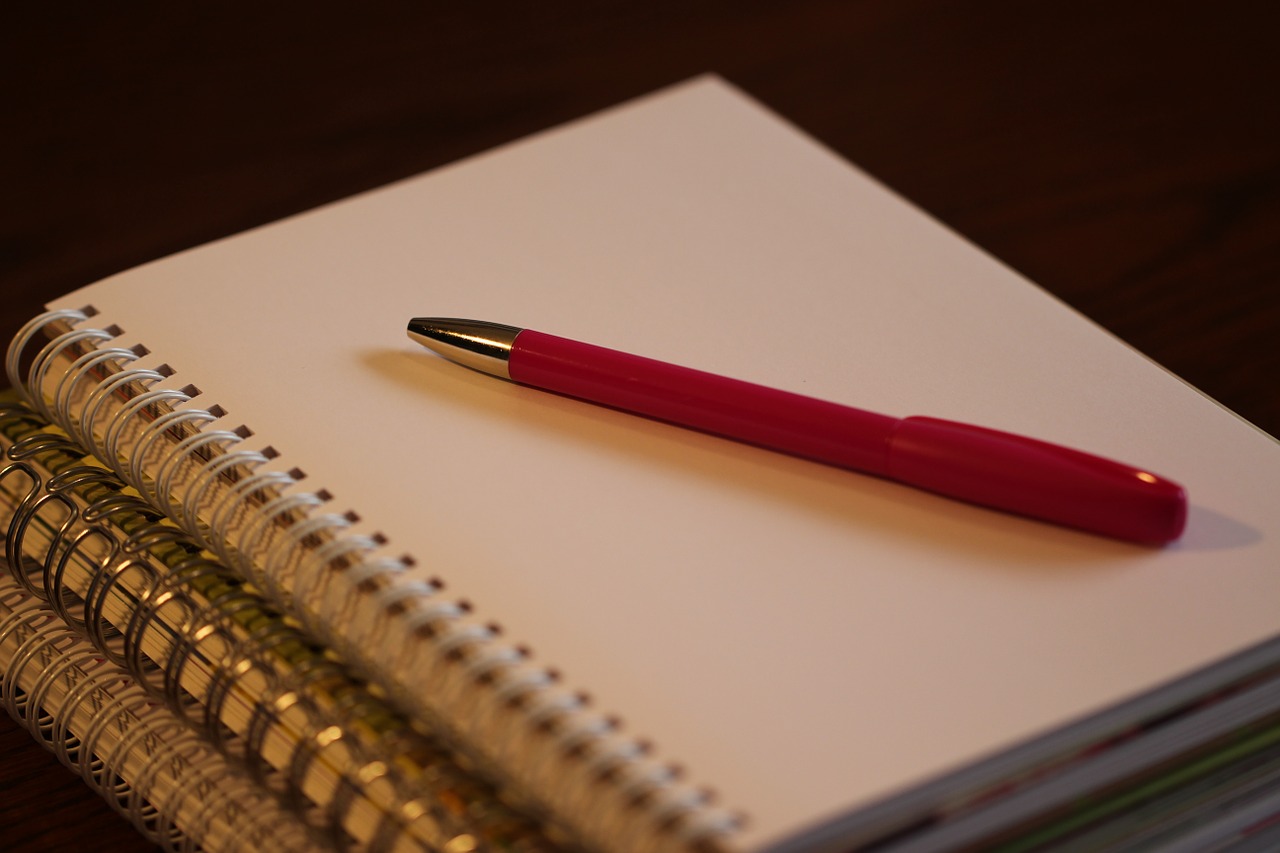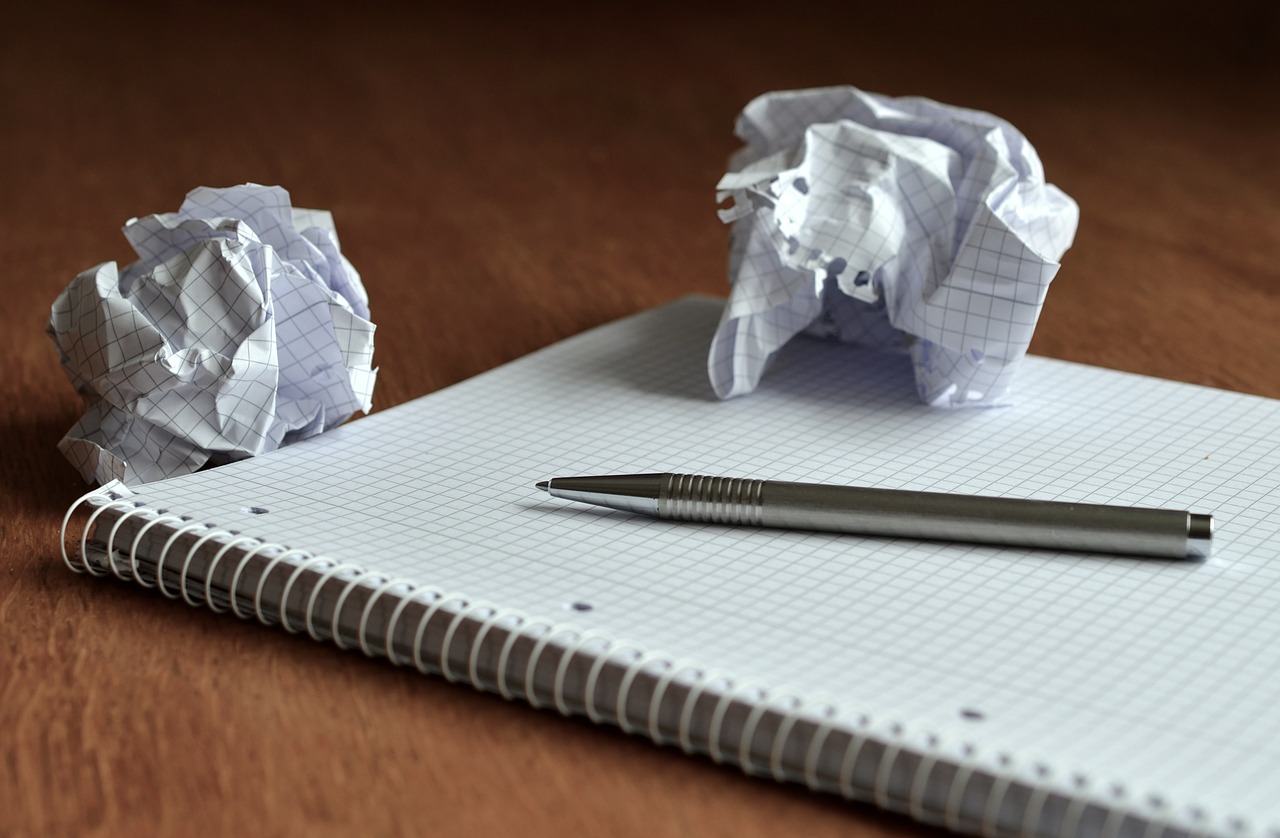9 Easy Hacks to Make You a Better Writer

You’re a good writer, but you want more. You want to be epic. Me too. In our common journey towards epicness, I’ve learned a few tricks along the way that I’ll share with you. These are hacks that will increase your creativity and improve your writing skills. Let’s hack our way to greatness. Are you with me? Let’s do this!
Would you like a list of websites with daily writing prompts? Subscribe to receive this free extra resource.
Keep a Notebook Handy

Your brain will not retain all the great ideas that come to you. Good thing you’re a writer—you can solve this conundrum with writing.
But, writing down your inspiration on sticky notes and random scraps of paper you may find around your desk won’t work. Sticky notes may seem like a good idea until you’re covered in them.
That’s why you need a notebook, but…
If you’re anything like me, those fancy, leather-bound notebooks are intimidating. You probably don’t want to jot down your random thoughts and ruin your pristine (and super expensive) notebook. So, do yourself a favor and invest in a cheap notebook that you don’t mind scribbling in.
Carry this notebook with you everywhere you go. It will be your best friend. Log your ideas, catchy phrases, character descriptions, and ideas for new stories.
Write Throughout the Day and Take Notes

As a writer, you have a time during the day when you’re crazy productive and creative. The words just flow from your mind and through your fingers. It’s almost like magic.
And then there are other times when you’re in a staring contest with the text cursor.
What if I told you those times aren’t random? If you take note of the times you write with ease, you’ll start to notice a pattern. Perhaps you write best in the morning hours (many of us do). Perhaps you write best after the world is quiet and you can finally reflect of your day. Maybe the afternoon is your muse.
Here’s what you should do: spend one week writing in the morning, afternoon, and evening. Each day vary the hours slightly. On day one, write at 7am, 1pm and 6pm. On day two, write at 8am, 2pm and 7pm, and so on. Just write down a quick note to yourself at the end of your writing session indicating whether it was easy or difficult. After a week’s time, you’ll notice a trend. That’s your perfect writing time.
That’s not to say you shouldn’t write any other time of day, but rather you should save your most creative needs for those times when writing comes easy.
Write in Short Bursts
There’s nothing more dreadful than sitting down with the thought that you’ll spend the next four hours of your life writing. Don’t do that to yourself.
Instead, write for 20 or 30 minutes at a time and then take a break. This method is called the Pomodoro Technique, and it does wonders for productivity. How? It actually motivates you to get more stuff written down, because you know that you’re racing against a clock.
You also need to take a break for perspective. As you write, you’ll inevitably grapple with character development or a wonky dialogue. By taking a breather, you can come back with fresh eyes and a new mindset.
Outline, Outline, and Outline Some More
Outlining may sound restrictive to your creative ears, but it’s one of the best hacks you can do to create a strong story. You may find that your storytelling comes easier as you write a loose outline of what will happen.
Your outline can be as detailed or as open as you’d like. You can create one for each chapter or go broader and have one for the entire novel.
Write It By Hand

Yes, I know it’s the 21st century and we don’t write by hand anymore, but humor me for a second. There’s something organic about writing with your hands. It creates more of an emotional tie to your story.
A recent study of college students found that those who took notes by hand retained more information than those who took notes via laptop. Those who wrote had more of a connection with their words.
Besides, you’re in good company. Truman Capote wrote by hand, too: “No, I don’t use a typewriter. Not in the beginning. I write my first version in longhand (pencil). Then I do a complete revision, also in longhand.” (Source, The Paris Review)
Know Your Reader
Who is reading your stories? What are their names? Why do they care? Here’s your moment to get obsessive and really think about your reader. When you consciously acknowledge that a real person, not a faceless, nameless voice, is reading your work, you’ll write differently. I guarantee it.
Understanding what the reader wants from the story and what hopes and fears they may share with your protagonist can affect how you relate the story.
Write Like Crap

Give yourself permission to write like crap. If you’re not writing stuff that makes you want to cringe on a daily basis, you’re not writing enough.
My point is, don’t edit yourself. At least not at first.
Many great writers will not write through a crappy stage. They want everything they write to be epic, and end up editing themselves to death.
But to be a better writer, you have to understand that everything you write won’t be great. But there will be nuggets of amazing beauty that will come when you relax your inner critic and just write.
Write Daily

Going hand in hand with the above hack, this one is admittedly controversial, but I stand behind it fully. If you want to sharpen your writing, you need to write frequently. No, not everything you write will be award-worthy, but it’s not about writing high quality content.
Writing daily is about teaching yourself how to think as a writer. It’s educating your brain on different literary devices and developing your creative process.
Read It Out Loud

Reading your prose in your head may be convenient, but real progress happens when you read it out loud. Hearing your words allows you to check for pretentiousness.
That’s right—pretentiousness. We all have a tendency to write on a higher level than we would normally speak or think. However, if you stuff your prose with big words that have the reader reaching for his or her dictionary, you’ll take away from the story.
You can also check for proper flow. Does the sentence roll off the tongue or is it halting and unnatural? During this check, you’ll probably find yourself correcting grammar, such as comma placement.
Finally, when you read out loud, you can also identify something else: run-on sentences! Those buggers aren’t always obvious in written form. If you have to take a breath within a sentence, it’s probably too long.
Final Thoughts
That was easy, right? Remember that practice makes perfect. Speaking of which, make sure that you download our curated list of epic writing hacks. Implement all of these tips to help you become a better writer immediately. Good luck!
Would you like a list of websites with daily writing prompts? Subscribe to receive this free extra resource.




